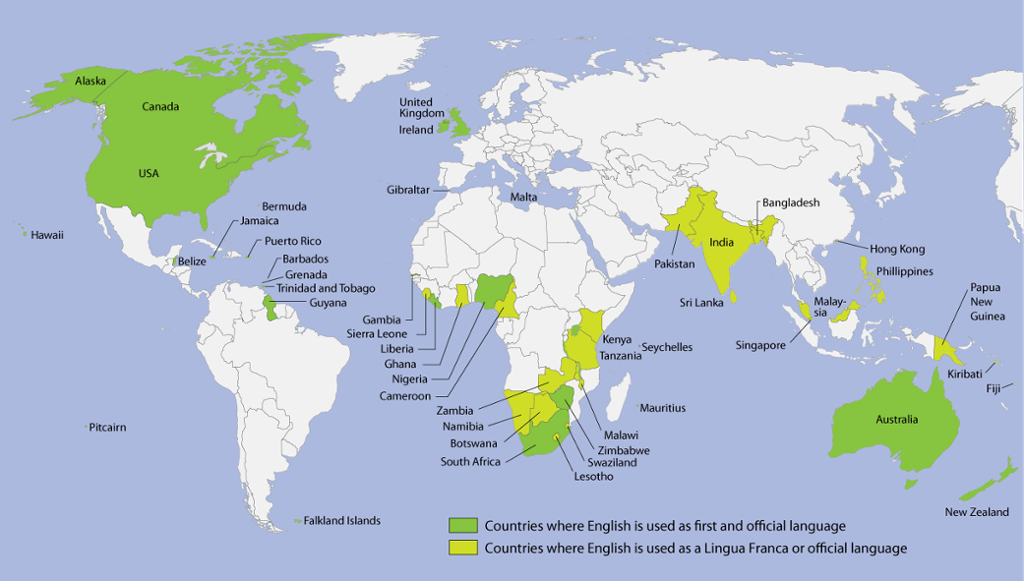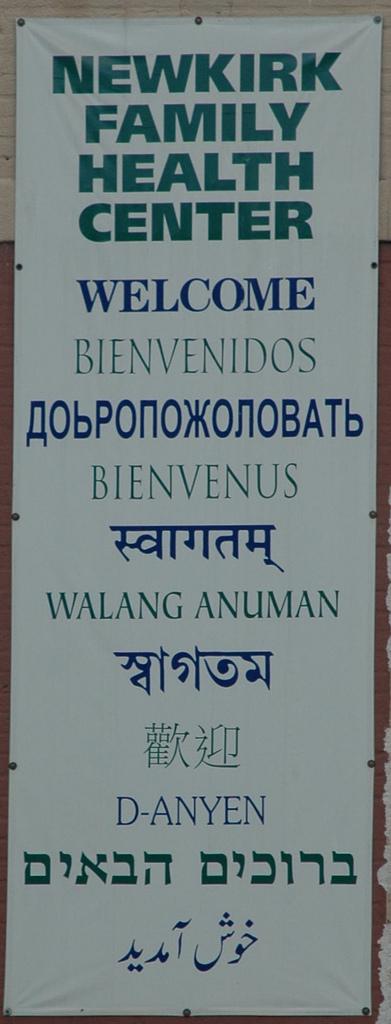English - World Language Number One

English world language number one
In this respect, major world languages are mainly of European origin. The historical reason for this is the period of European colonialism. World languages originating with historical colonial empires include English, German, Spanish, Portuguese and French. The international prominence of Arabic has its historical reason in the medieval Islamic conquests. Mandarin, which is spoken in China, is the largest language in terms of native speakers and is also considered a world language since it is spoken in many major cities around the world such as New York and Los Angeles. Mandarin is also spoken in several South East Asian nations like Singapore and Malaysia.
Other major languages are not widely used across several continents, but have an international significance as the lingua franca of a historical empire. These include Greek in the Hellenistic world after the conquests of Alexander the Great and Latin in the Roman Empire.

In historic times Greek and Latin were widely used. These empires stretched over most of Europe and well into Asia and Africa. Especially Latin was by many educated people considered the lingua franca of the Western world. The Greek and Roman Empires, dating roughly from 500 BC to 500 AD, are regarded as the cradle of Western civilization in terms of their developing sciences, philosophy and a legal system based on individual rights. We, therefore, find many Latin and Greek words and expressions still in use either in their original form or slightly altered to fit the spelling and pronunciation of various native languages. Words like democracy, television, intelligence, and community are Latin or Greek. There are thousands of these words in everyday use all over the world. Lingua franca, which means a language commonly used internationally, is a typical example of the Latin influence on languages today.
Within the higher studies of most disciplines you will find a specialized vocabulary based on Latin and to some extent Greek. Latin and Greek expressions are often still used in company logos and in ceremonial contexts. The International Olympic Committee has the following: Citius - Altius - Fortius. These words mean Faster - Higher - Stronger.
The major languages of the Indian subcontinent, Hindustani (including all Hindi dialects and Urdu) and Bengali also have very high numbers of speakers. This is primarily due to the extreme population growth in the region. They are also considered world languages since they are widely spoken in several countries in that region as well as being spoken in many Western and Asian cities amongst large immigrant groups. Hindustani languages are not among the official UN world languages, but many feel they should be.
A number of international languages have been introduced as prospective world languages, the most successful of them being Esperanto, but none of them can claim the status of a living world language.
A living world language has the following characteristics:
- a large number of speakers
- a substantial fraction of non-native speakers (functions as lingua franca)
- official status in several countries
- the linguistic community is not defined along ethnic lines (multiethnic, pluricentric language)
- used in international trade relations
- used in international organizations

World languages in this sense are the six official languages of the UN (Chinese, English, French, Russian, Spanish, and Arabic) as well as Hindi/Urdu, Portuguese, and German.
There are as you can see many world languages, however none can compete with English in terms of importance. In areas such as trade, politics, tourism, media and entertainment English plays a unique role. As our world becomes more and more intertwined, English has become a language everyone has to learn to some extent if they want to travel, interact, do business or use the internet.
Source: http://en.wikipedia.org/wiki/World_language (added to and adapted)
- Make an Advertisment. Look at the picture above. Do you think this is a good way of advertising an English course? Make your own ad for an English course. Come up with a slogan and add some convincing facts.
- More tasks related to this article: English - Our Number One World Language - Tasks